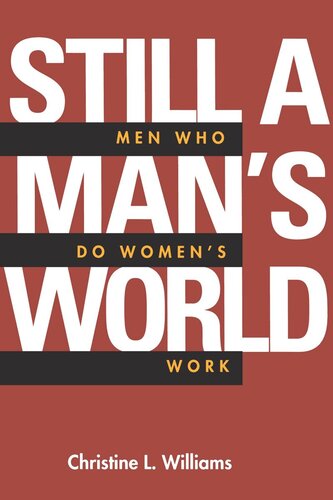

Most ebook files are in PDF format, so you can easily read them using various software such as Foxit Reader or directly on the Google Chrome browser.
Some ebook files are released by publishers in other formats such as .awz, .mobi, .epub, .fb2, etc. You may need to install specific software to read these formats on mobile/PC, such as Calibre.
Please read the tutorial at this link: https://ebookbell.com/faq
We offer FREE conversion to the popular formats you request; however, this may take some time. Therefore, right after payment, please email us, and we will try to provide the service as quickly as possible.
For some exceptional file formats or broken links (if any), please refrain from opening any disputes. Instead, email us first, and we will try to assist within a maximum of 6 hours.
EbookBell Team

0.0
0 reviewsMen who do "women's work" have consistently been the butt of jokes, derided for their lack of drive and masculinity. In this eye-opening study, Christine Williams provides a wholly new look at men who work in predominantly female jobs. Having conducted extensive interviews in four cities, Williams uncovers how men in four occupations—nursing, elementary school teaching, librarianship, and social work—think about themselves and experience their work.
Contrary to popular imagery, men in traditionally female occupations do not define themselves differently from men in more traditional occupations. Williams finds that most embrace conventional, masculine values. Her findings about how these men fare in their jobs are also counterintuitive. Rather than being surpassed by the larger number of women around them, these men experience the "glass escalator effect," rising in disproportionate numbers to administrative jobs at the top of their professions. Williams finds that a complex interplay between gendered expectations embedded in organizations, and the socially determined ideas workers bring to their jobs, contribute to mens' advantages in these occupations.
Using a feminist psychoanalytic perspective, Williams calls for more men not only to cross over to women's occupations, but also to develop alternative masculinities that find common ground with traditionally female norms of cooperation and caring. Until the workplace is sexually integrated and masculine and feminine norms equally valued, it will unfortunately remain "still a man's world."